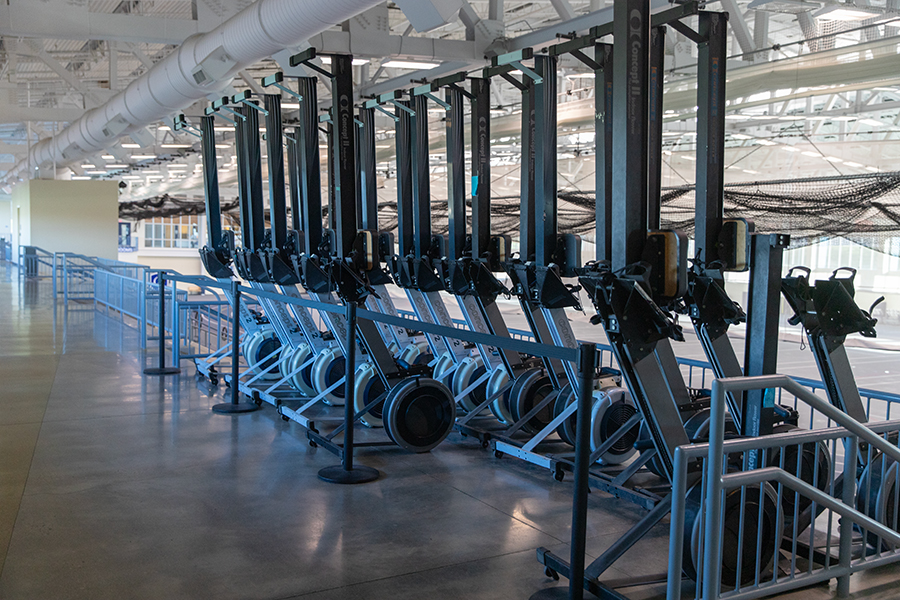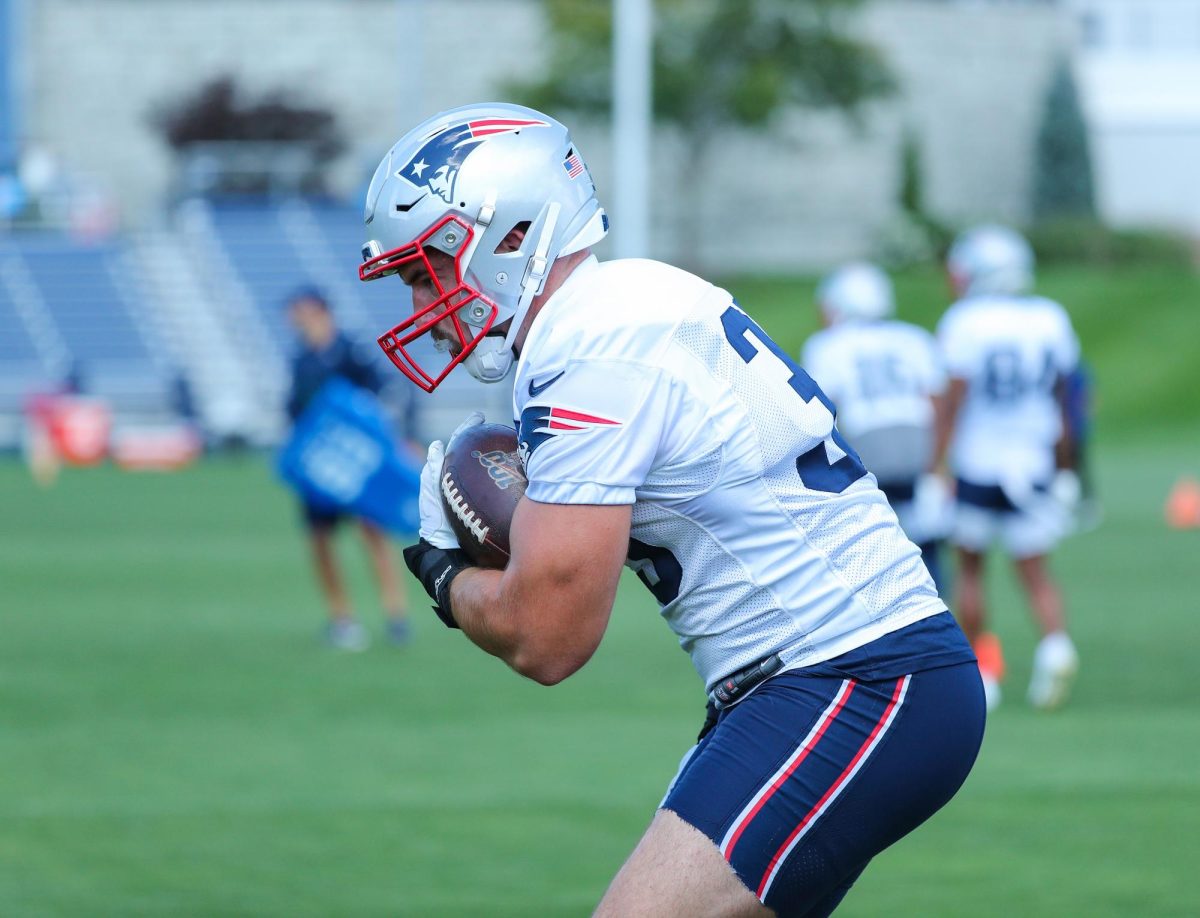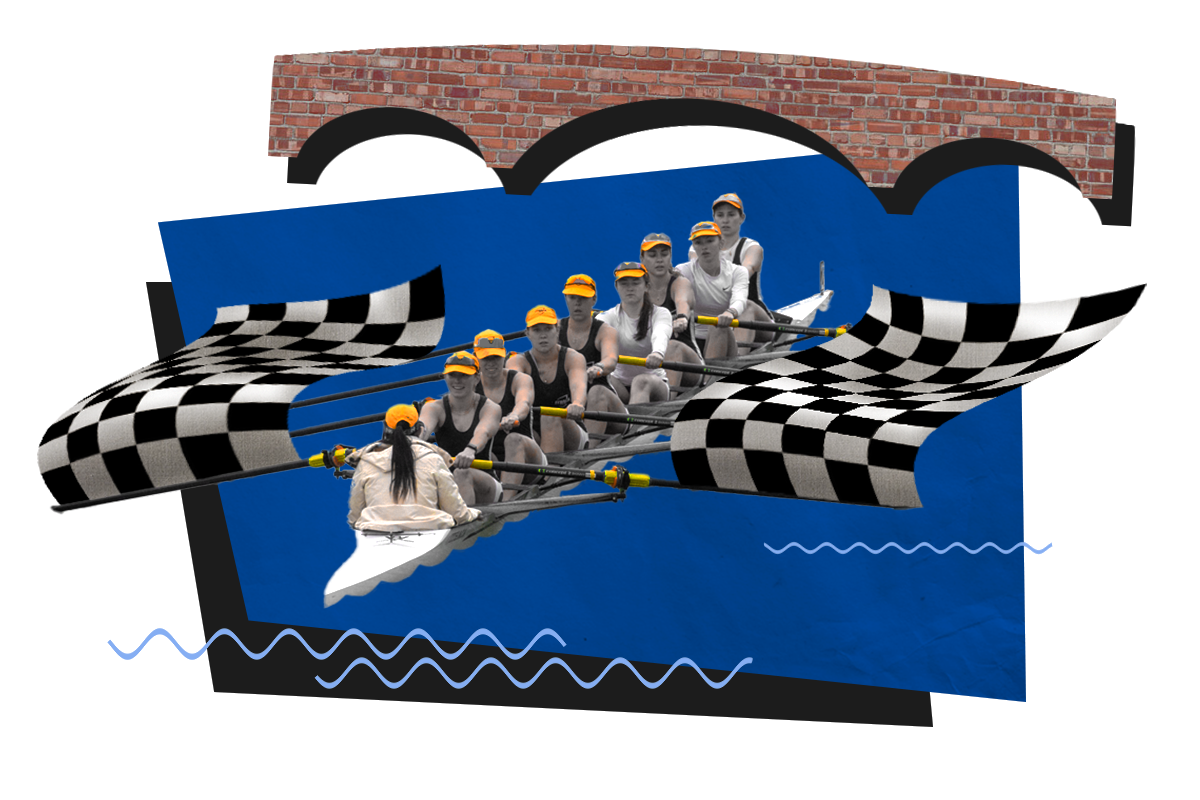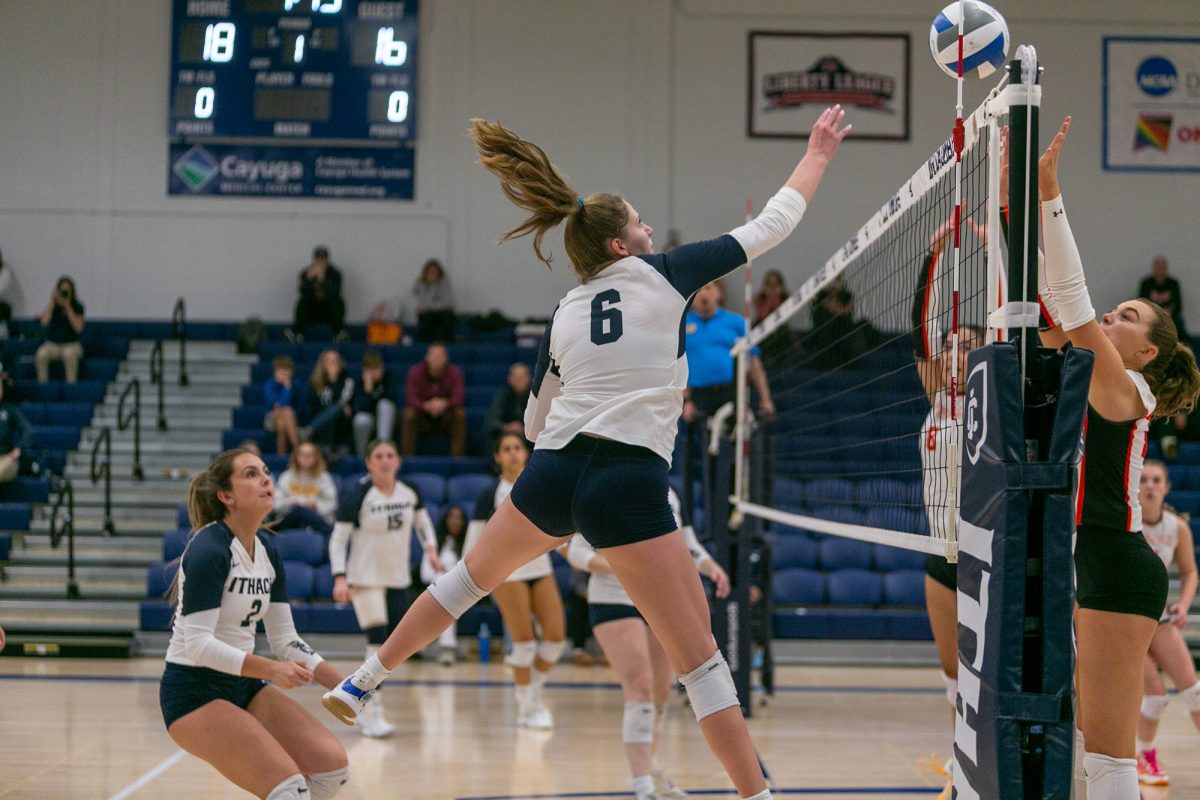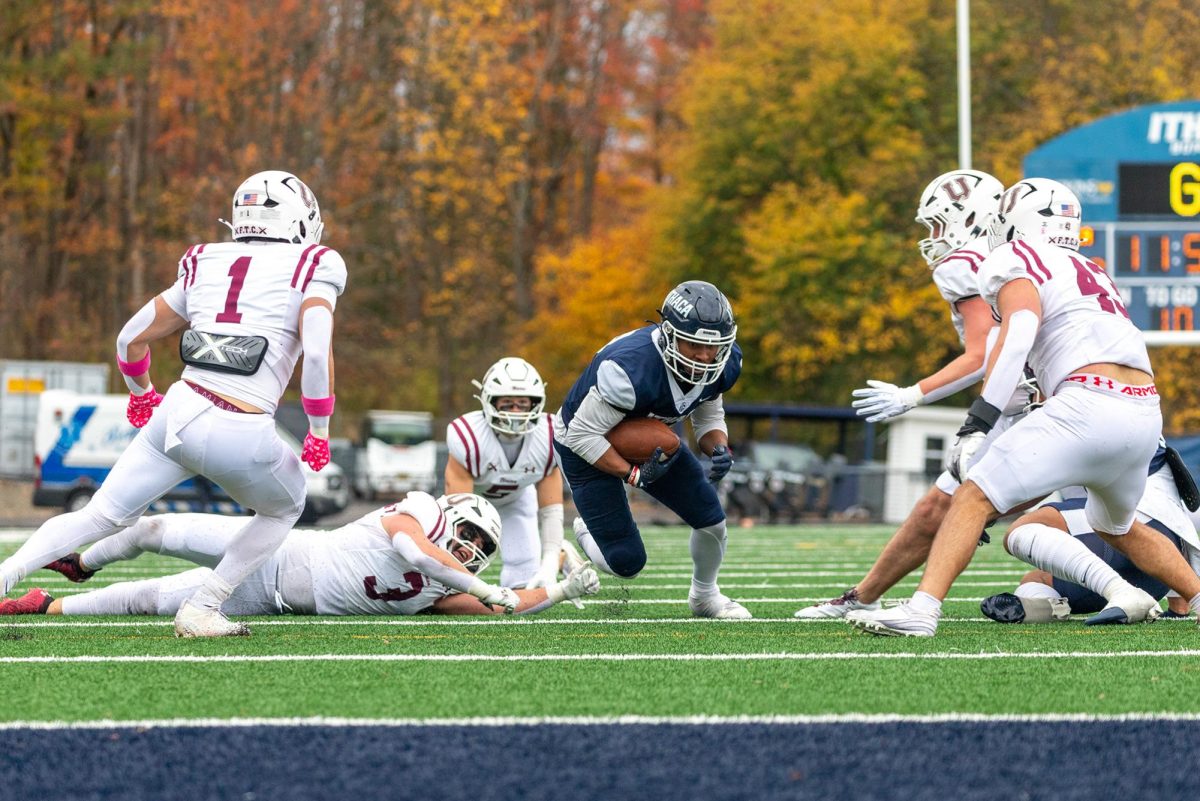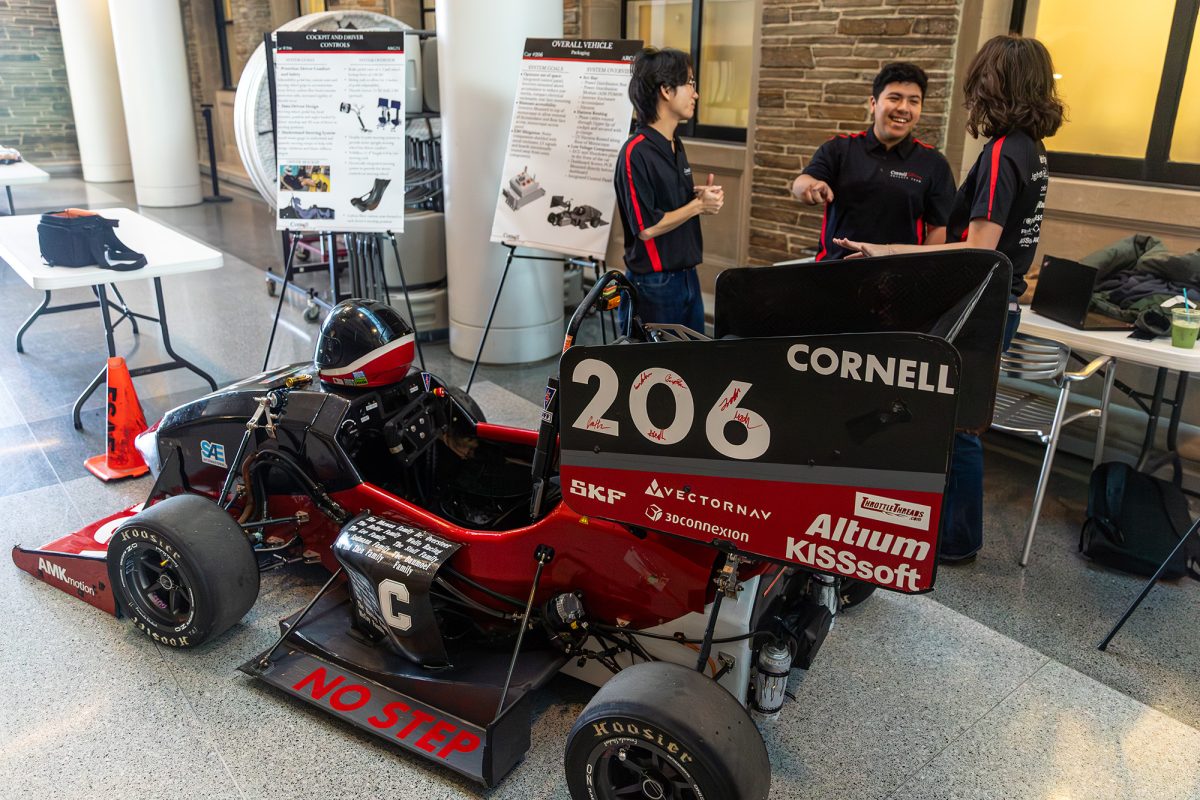In February, Ithaca College announced that longtime head coach of strength and conditioning, Vic Brown, announced his resignation from the department. To fill the void, a young group of strength and conditioning coaches and graduate assistants have fought to maintain stability through continuing change.
After 10 years of service at Ithaca College, Brown said he wished to be closer to his family. Following Brown’s departure, Ben Fleet, who served as the assistant strength and conditioning coach since August 2022, assumed the interim head position. Fleet said he sees this new role as an opportunity to continue to build on Brown’s legacy, and is working to try and maintain a high standard for the program.
“Coach Brown was an incredible and still is an incredible mentor for me,” Fleet said. “And Vic did a great job of leaving this program in a really good spot, where I try to continue that vision of success.”
Madison Mulligan, assistant coach of the women’s lacrosse team and member of the strength and conditioning team, said she found out Brown was leaving when the rest of the campus community did, but feels as though he left the program in good shape.
“I found out just as everybody else did, but I feel as though Vic did a really good job of making sure that everything was set to go before he left,” Mulligan said. “Scheduling and programming wise, he pretty much left us with a plan for the rest of the year, so it’s been pretty smooth.”
The program operates with the help of a team of graduate assistants who work to create and manage strength and conditioning plans for athletes across the Ithaca College campus. Mulligan said the responsibility has shifted since Brown’s departure and has impacted the grad assistants.
“Two of the graduate assistants from last semester left, so there has definitely been a lot more hours — a lot more teams to cover,” Mulligan said. “I would definitely say it’s a beneficial thing. … It’s a good chance for people to have to fill roles with a little bit more responsibility and get more experience.”
Will McGennis, a first-year graduate student who works primarily with men’s lacrosse, said that while this transition period has led to the team being short-staffed, it has not hindered the ability to provide for the student-athletes.
“In addition to Vic, our staff really got reduced by three to five people here at IC,” McGennis said. “But our team remains passionate, and I think the athletes have really experienced no loss, so to speak, in attention toward them and their teams. Myself and the other graduate assistants, Fleet and our interns do a fantastic job every day that we’re in the weight room, providing an atmosphere that allows everyone to succeed — where everyone’s taken care of.”
Fleet said making sure the graduate assistants are serving the campus athletic community with transparency is important.
“I can’t be in two places at once, so I can’t see everything that [grad assistants are] doing all the time, but we meet every single week, meeting often and we meet for a long time, and we talk about what they’re doing with their teams; what’s going well, what isn’t going well; what needs adjustments,” Fleet said. “At the end of the day, I have a good communication line with everybody involved.”
Cristea Park, a fifth-year member of the golf team, said she recognizes and appreciates the way Fleet has gone about this transition, while also noting the transition has led to difficulties in familiarity with staff and assurance.
“I think Fleet is doing a great job and trying his best, but a lot of us really liked Vic, and all of us had so much respect for him,” Park said. “Mentally, I really trusted him, and so I feel like transitioning into a period without him is slightly difficult.”
Fleet said this emphasis on making sure the teams are still provided with equitable time and resources are of top importance as he navigates this sudden transition period.
“At the end of the day, I want everybody on every single team to get exactly what they need,” Fleet said. “I’m going to do everything in my power to be equitable, and give them [the athletes] the support that they want and that they deserve.”
One way Fleet intends to prioritize the athletes is by working to establish a culture of trust within the strength and conditioning program. Fleet said that creating trust, not only between himself and the athletes, but solidifying the trust between him and the graduate assistants is a priority for him.
“To keep building that trust every single day that we’re here the past two semesters, it has been very helpful and very reassuring for me to know that I can lean on them, and they can do a great job for our athletes,” Fleet said. “Everything that they apply to their programs comes through me, and I have to see it before, you know, they go — so we can really build that trust and I can have a good understanding of what they’re doing.”
Moving forward, Fleet is confident in the program he is working to create, building off of the work of Brown. He said he is looking forward to expanding the team as soon as possible, waiting on the hiring process from Ithaca College administration.
“They are in the search of hiring a new person to get on staff, so you know, when that happens, we’re gonna be in such a phenomenal spot, and we are set up for success moving forward,” Fleet said.
Susan Bassett ’79, director of Intercollegiate Athletics and Campus Recreation, did not respond to a request for comment on the search.
McGennis said he values Fleet’s openness and ability to help create the best opportunities possible.
“We bounce ideas off each other, and there’s just a sense of trust and equality there that helps us be the best we can,” McGennis said.
First-year student tennis player Kendall Curley said she has had a strong experience with the strength and conditioning team thus far.
“The grad students are always there to support, they are passionate and are very good at what they do,” Curley said. “Taylor Volmrich especially helped me — as well as the tennis team — during our first semester. They would guide us on how to properly do exercises, and push us to do our best.”
Volmrich is a fifth-year athlete on the rowing team and has worked as an intern and a grad assistant in the strength and conditioning department. One challenge Volmrich identified throughout this transition process is making sure that the people in the weight room are really wanting to be there and wanting to help.
“For our grad assistants, half are mental performance concentration students,” Volmrich said. “They’re not strength and conditioning focused, and it’s a little bit unsure with their experiences, if they actually want to be there in the weight room. So I think working to make sure they can really get people that are wanting and prepared to go into the weight room is important.”
Volmrich said that highlighting the opportunities in the internship program could help aid the transition. Volmrich said that shining more light on the program will lead to more ready and able people to help out with the strength and conditioning staff.
“In the internship program, you’re getting a lot of trust, experience and guided learning to develop your skills,” Volmrich said. “I think that would make it a little bit easier to have more students on the ground.”
Sports Editor Billy Wood contributed reporting to this story.


